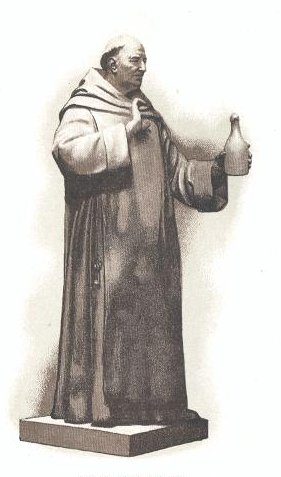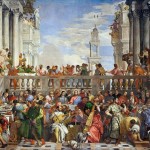 I’m Catholic. I’m French. It won’t surprise you that food and drink have a big part in my life.
I’m Catholic. I’m French. It won’t surprise you that food and drink have a big part in my life.
And, of course, this is wholly in accord with the Gospel. We have been baptized as priests, which means we are called upon to divinize the world (this is what sacraments do). Jesus gave Himself to us as food and drink–food that is given to us by the Earth of the Lord’s good creation, but passes through men’s work before it can be consecrated and transubstantiated. To make food and drink is to perform a sacramental function.
Just ask the monks, the ultimate world-divinizers, who spend their time making delicious cheeses, and beers, and sweets, and wine, and and and… In my home region of Burgundy, all of the wine terroirs were delineated by monks in the Middle Ages. (I’ve heard from a local winemaker that there had been a big effort recently to analyze the soils, weather patterns and such to figure out if a better delineation could be made, and the answer was no.) Heck, it was a monk who invented champagne (which tells you as much about marketing as a charism as anything else).
All of which is to say that I think of fasting periods as invitations to do poetry; that is to say, what makes poetry poetry is that the constraints of prosody serve the beauty of the art. Similarly with fasting.
I’m the one who cooks at home, and I’ve decided to forgo meat this Lent. I’ve decided to see this as an opportunity to make delicious, nutritious vegetarian meals. This way, fasting isn’t just about repentance, thanksgiving and self-mastery, but also an occasion to fulfill my vocation as co-creator more deeply and thoroughly. Fasting is not just a negative thing, it is a positive thing.
















